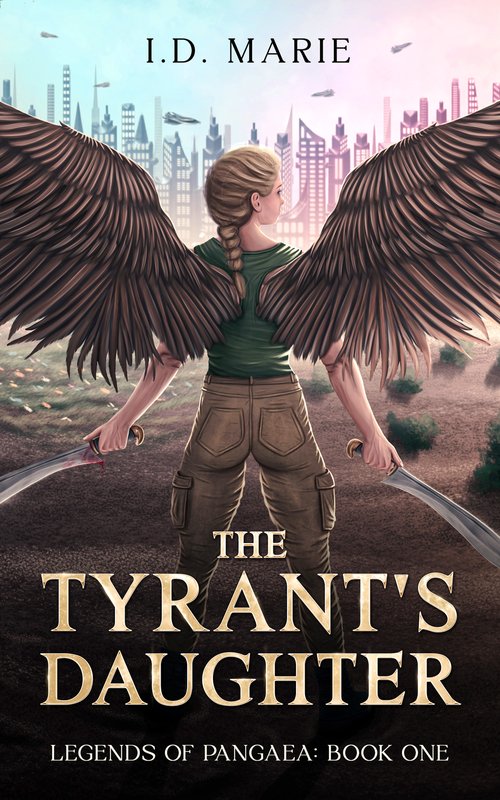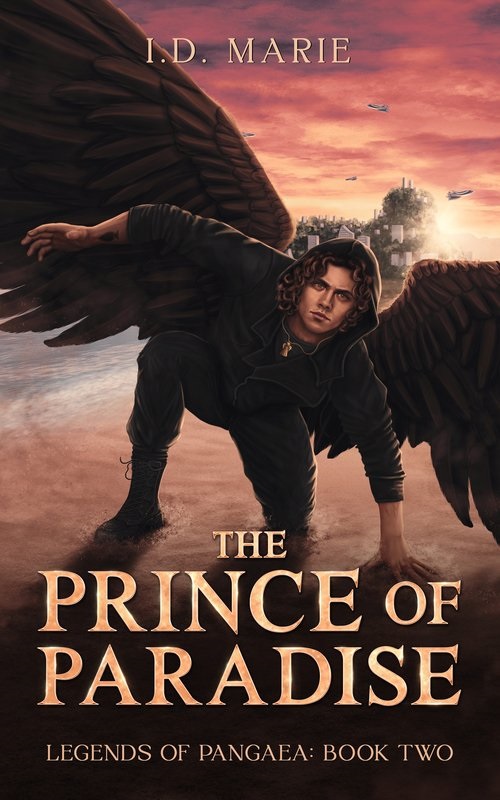ADHD and its Relationship With Writing - I.D. Marie
19 Jun 2024A major theme I've witnessed since throwing myself deep into the trenches of the writing community is the high prevalence of ADHD. For those uninitiated with the attention disorder, this might seem like a strange trait to find in authors. Naturally, the old-fashioned stereotype of an individual with ADHD is someone who cannot sit still, struggles academically, and exists in a constant state of distraction. Seeing as a writer is typically someone who can get lost in their made-up world for hours on end; it can be hard to see how two qualities, authorship and ADHD, can coincide. Yet, these two traits are not only common, but many authors stand by the belief that their ADHD is a writing superpower.
I was diagnosed with ADHD when I was in college. As a woman with decent academic performance, it seemed my other more prominent symptoms stayed under the radar until I hit a point where I could not white-knuckle my symptoms with enough effectiveness to get by. After some severe bouts of depression and an abnormal psychology class whose lesson in ADHD just sounded like everyday life to me, I finally decided to talk to a professional. And what do you know? Almost every aspect of my life was textbook ADHD. When I was younger, I got into fights at school, loved disassociating with reading, and struggled academically until I was old enough to play sports and use those as an energetic outlet. In grade school, I was constantly mocked for being unintelligent because, for some reason, I simply did not pick up on concepts as quickly as others. All of this translated to college, where I quickly discovered I had to study twice as hard as my peers to produce the same grades. As I discussed, college was also when simply forcing down my symptoms became unsustainable.
But what does this have to do with writing?
Well, lovely readers, here is the kicker: even though I didn't know I had ADHD until college, I had been passively treating it with my writing since middle school. Honestly, I attribute the successful management of my symptoms for so long to my athletic endeavors and writing. Once I was diagnosed, and seeing as I was in the sciences in college, I naturally wanted to write my senior thesis on the fantastic link between ADHD and writing. The amazing thing was that my thesis was further proven as I developed relationships within the reading and writing community. I saw that thousands, maybe millions, were unknowingly treating their attention disorders with worlds inside their heads.
My comprehensive thesis looked into developing a creative writing regimen to treat ADHD-linked depression. Still, I believe that the research I did could also easily relate to any individual struggling with ADHD. My study broke down the benefits of creative writing into four factors: physical, emotional, cognitive, and spiritual.
On the physical end, I looked into how the stressors of managing an attention disorder can impact the body with stress, depression, and anxiety. These symptoms physically present themselves with increased heart rate, insomnia, fatigue, and a decline in lymphocyte numbers, which is related to immune health. For authors who use creative writing to help manage their ADHD, this symptom management can lead to many positive physical effects. I found a research article titled: Creativity and Mental Health: A Profile of Writers and Musicians (Pavrita 2007) that pointed to the fact that creatives had comparable rates of mental health disorders as the general population, but they sought out statistically less psychological aid than their non-creative counterparts. This data further supports the fact that creatives and their chosen creative outlet were passively treating their psychological symptoms with an artistic outlet that the general population did not do.
The emotional, cognitive, and spiritual aspects are harder to see. For this, I examined the profile of an individual with ADHD. For this section, I also looked inwardly at how my creative writing truly impacted my symptoms.
Like many writers I've talked to, my ADHD made me struggle with disassociation. I would daydream a lot. Before I had stories to fill my head and direct my daydreams, many of my disassociation sessions were forgotten or became meandering with little practical use. They quickly became something that I was ashamed of. But, once I started writing stories, my daydreams became a superpower. I was constantly dreaming about my characters and the far-off lands they would travel to. While many people had to make time to develop their stories consciously, I found that I was passively developing complex story threads throughout the day. Daydreaming quickly became something I looked forward to and appreciated in myself.
The development of complex story threads brings up another quirk of ADHD that I developed into a strength. If you know someone with ADHD, or if you have it yourself, you can attest that our ADHD friends tend to go off on tangents most people have trouble following. While the typical onlooker might be confused about how a person with ADHD can seemingly link two unrelated subjects, those with ADHD not only recognize the connecting threads, but they can follow them effortlessly. While the noise of thousands of thought threads bouncing concussively around the inside of your head can be distracting, this way of thinking trains an individual with ADHD to become a master storyteller. Stories are not linear; they require thousands of variables to coincide and battle to build a story (sometimes on the page and sometimes off). Being able to see all of these variables, managing them, and seeing how they behave independently and together is a complex skill to learn. But, for someone who has ADHD, this type of scattered thinking is second nature.
I saw creative writing as a skill that attacks my ADHD on two fronts. I am physically relaxing, which can lessen physical symptoms and improve my overall health. Internally, I am giving the typical quirks of ADHD a playing field where these symptoms can thrive and become superpowers, not something I am ashamed of. When I can create crazy stories and even crazier worlds because of a disorder people once saw as making me unintelligent, I become immensely proud of both my abilities and the things that make me different. I know many creatives have come to similar conclusions as I have, and I encourage each of you to continue finding the ways you are unique and embrace it. We may not all have wings to fly, but we all have a superpower if we know where to look.
Like what you've just read? You can order the Legend of Pangaea series using this link.


Both covers have been designed by Lunaris Falcon Studio.
About I.D. Marie

Graduating from Quinnipiac University with a degree in Immunology and Microbiology, I.D. Marie has a background in the sciences. Her original passion for biotechnology came from her early love for Sci-fi stories like the X-Men comics and movies like Contagion, Star Wars, and GATTACA. Growing up, she developed a love for writing thanks to her 7th-grade English teacher who taught her how writing can be a creative (and fun, if you would believe it) way to express herself. Already an avid reader, Marie took up the art form and has never looked back.
A Celtic-Latina American, Marie is inspired by Science fiction and the mythologies of her respective cultures. These two passions bleed into her work. Marie’s debut novel, The Tyrant’s Daughter, explores her interests in genetic mutations along with a hint of political intrigue and mental health.
“If it was easy, everyone would do it,” is a quote Marie lives by. A college athlete, aspiring writer, and bioengineer, Marie has always strived to be the best version of herself… no matter how challenging.
